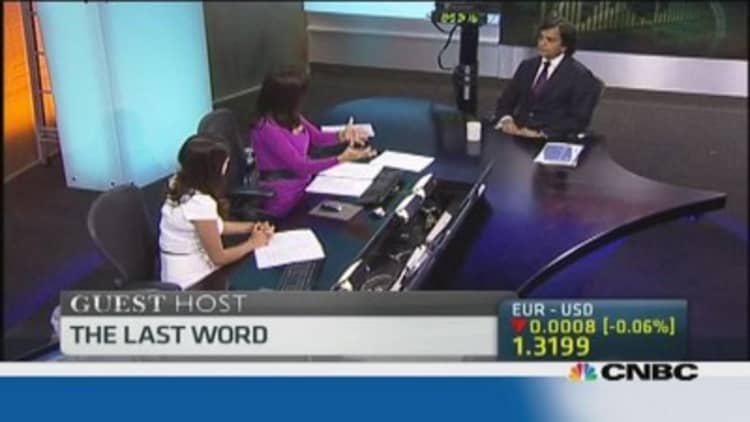Asian shares are unlikely to offer much return for the fourth quarter, but North Asian markets such as Korea and Taiwan and yield plays offer opportunity, Goldman Sachs said.
The bank estimates only one percent returns at the regional level amid macro-economic challenges, pedestrian earnings, middling valuations and poor risk-adjusted performances so far this year.
But it expects that a likely pickup in U.S. growth, an anticipated tapering of asset purchases by the Federal Reserve by year-end and China's decelerating growth momentum will affect North and South Asia differently.
(Read more: Rush for China plays ill-timed: Goldman)
Most of Asia's markets have underperformed their U.S. counterparts, with the S&P 500 tacking on more than 18 percent so far this year, while Korea's Kospi is essentially flat and China's Shanghai Composite has shed around 3 percent over the same period.

"North Asian economies have greater sensitivity to U.S. growth, are less vulnerable to (quantitative easing) exit concerns, have better fiscal and domestic credit conditions, and are seeing foreign inflows as investors reduce underweight positions," it said in a report.
For Australia, Hong Kong and most Southeast Asian markets, tighter U.S. financial conditions may outweigh the benefits of stronger U.S. growth, it said.
(Read more: Goldman downgrades emerging Asia currencies)
"China and its related equity slices, including Hong Kong and Australia, may see a tactical rougher patch in the fourth quarter, especially considering their outperformance in the third quarter." It also expects markets wresting with imbalances such as current account deficits and excess credit may lose out.
Goldman is "overweight" on Korea, viewing it as inexpensive and noting light foreign-investor positioning, and Singapore as the safest part of Southeast Asia. It is "market weight" on China, Philippines, Taiwan and Thailand and "underweight" on Australia, Hong Kong, Indonesia, India and Malaysia.
To play the themes, it advises going long Korea and Taiwan and short India and Indonesia, using U.S.-listed exchange-traded funds, with long positions on iShares MSCI South Korea Index Fund and iShares MSCI Taiwan Index Fund, while shorting iShares MSCI Indonesia Investable Market Index Fund and WisdomTree India Earnings Fund.
"The relative long/short trade could offer better risk-reward than outright long or short given our expectations of an overall muted fourth-quarter," it said, adding the trade will also benefit from any weakness in Indonesia's rupiah or India's as the ETFs are U.S. dollar-denominated.
(Read more: We still love stocks, but not as much: Goldman)
Goldman also advises a dividend yield and growth strategy in the wake of the 10-year U.S. Treasury yield slipping back to around 2.7 percent currently from highs around 3 percent touched during recent market turmoil amid market expectations the Fed would taper its asset purchases.
"A successful dividend strategy needs to focus on dividend growth, not just the level of yield."
Its top dividend-growth picks in the region include HSBC, which it also considers a top laggard play.
— By CNBC.com's Leslie Shaffer. Follow her on Twitter @LeslieShaffer1



